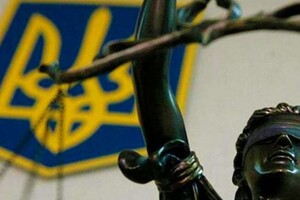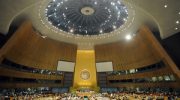Parliament screened out dubious participants by appointing Roman Maselka and Mykola Moroz, but there is no guarantee that other subjects of appointment of members of the VRP will do the same.

The Supreme Council of Justice of Ukraine in five years during its activity, it managed to make hundreds of unsuccessful decisions – from illegal appointments of judges to covering up suspects in serious crimes and pressure on other judicial institutions. So I needed a reboot as soon as possible.
Under the pressure of civil society and the international community, last year the parliament adopted the relevant law, which provided for the creation of the Ethics Council of the Ukrainian People's Republic of Ukraine – a special body that was supposed to choose a virtuous replacement for the discredited members of the Council. Unfortunately, difficulties arose in the selection process, experts write. Mykhailo Zhernakov and Samira Abbasova of the DEJURE Foundation in the article “Judicial reform. What are the risks involved in the formation of the VRP“.
First, under the pretext of martial law, the Ethics Council closed the online broadcast of interviews with candidates for the VRP.
It is not known what such sensitive information could be revealed in an interview that would threaten the life or health of the contestants when they are in the territory controlled by Ukraine.
“Therefore, the decision of the Ethics Council simply does not meet the public interest calls into question the transparency of judicial reform, the trust in its results”, the authors explain. Second, the Ethics Council recommended the appointment of at least two dubious candidates – Vyacheslav Talk and Elena Zaichko< /strong>.
Talko used to work as an inspector in the VRP, precisely with those members to whom the head of the OASK Pavlo Vovk gave instructions to persecute judges. His expenses are ten times higher than his income. In addition, this candidate is obviously connected with “Servants of the People”.
Judge Zaichkoinvolved in the looting of dozens of hectares of land in Kharkiv. And her public organization openly opposed the reform of the High Council of Justice with the involvement of international experts, repeating the Kremlin's narratives about “external management”. >Marina Voystryk, as a result of which she canceled almost 7.5 million UAH of tax debt.
Parliament weeded out these dubious participants by appointing Roman Maselka and Mykola Moroz, but there is no guarantee that the other sub destinations will do the same. The function of initial verification and exclusion of unscrupulous candidates should still be performed by the Ethics Council, experts emphasize.
Thirdly, The Ethics Council did not recommend the appointment of whistleblower judge Larisa Golnyk .
In 2015, Judge Golnyk refused to make a decision in favor of Poltava Mayor Olexander Mamai due to a bribe., filed a crime report and documented it. The judge won a prison sentence for the middleman and is still fighting for Mamai's punishment. For many Ukrainians, she became a symbol of honesty, indomitability and rejection of any manifestations of corruption, gained a lot of support and recognition, particularly outside of Ukraine.
Such decisions of the Ethics Council put on the brink of disaster judicial reform, which continues in the conditions of war. According to the authors, in order to avoid this, it is necessary to change a number of fundamental things in the Council's work, in particular, to significantly increase the transparency of the body's activities and ensure its stable communication with the public, which analyzes and provides information about unscrupulous candidates.
Read also: The Ethics Council did not provide a list of candidates for the position of members of the Supreme Council of Justice
Related video
How is judicial reform progressing in a war situation? Which people claim key roles in the system? How is the process of forming a new composition of the Supreme Council of Justice, a key body for the judicial system, going on? Read the text of Mykhailo Zhernakov and Samira Abbasova “Judicial reform. What are the risks involved in the process of forming the GRP”.


